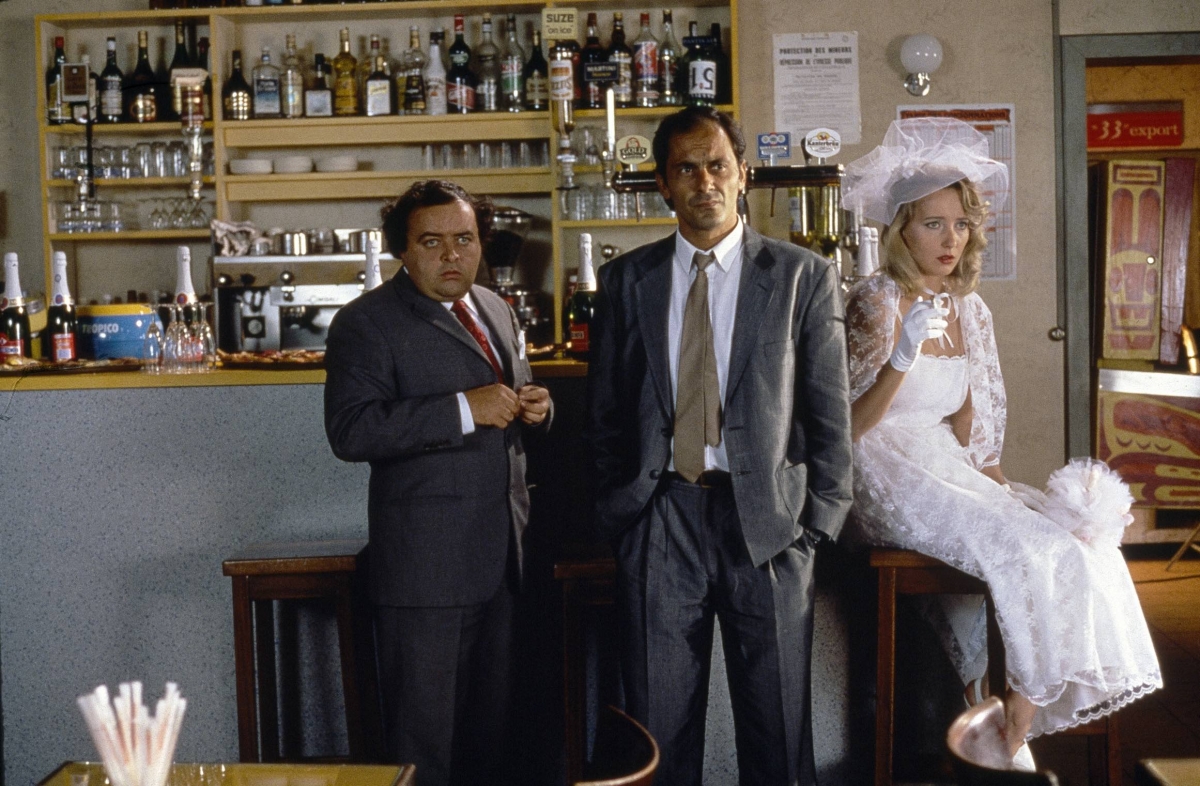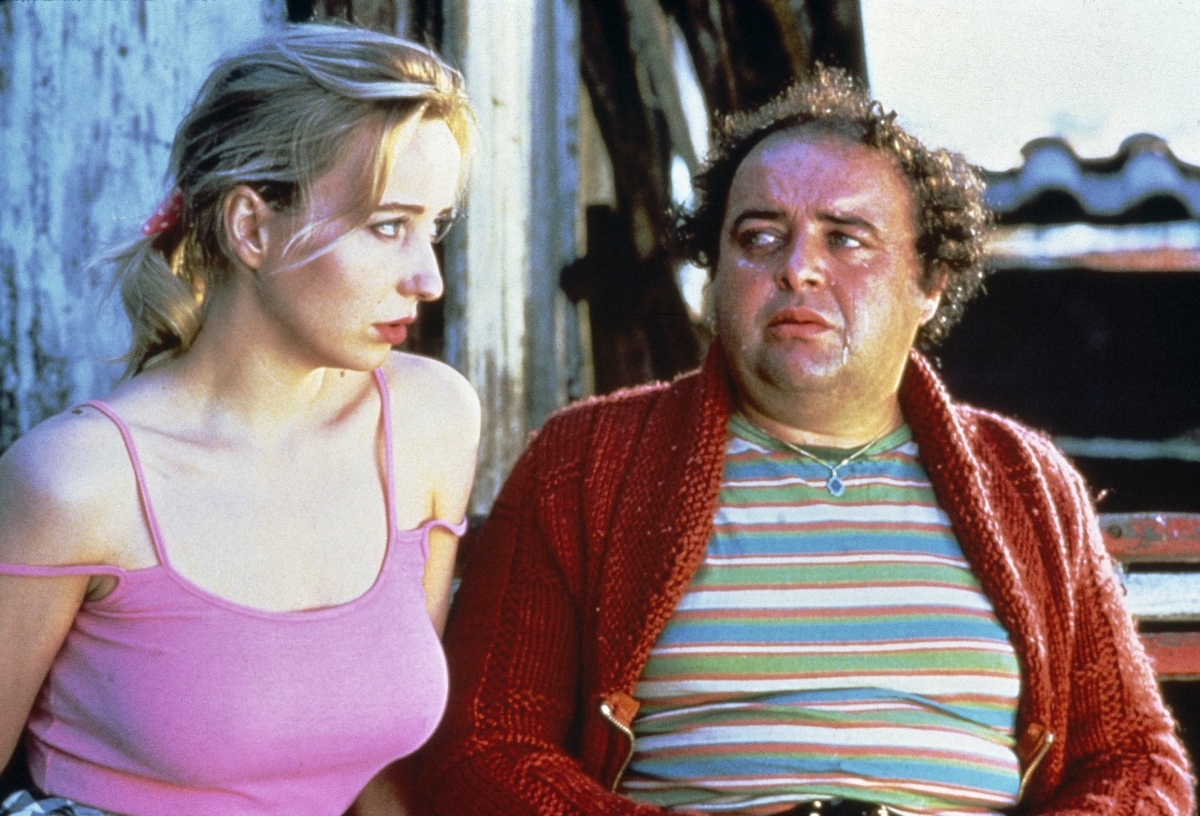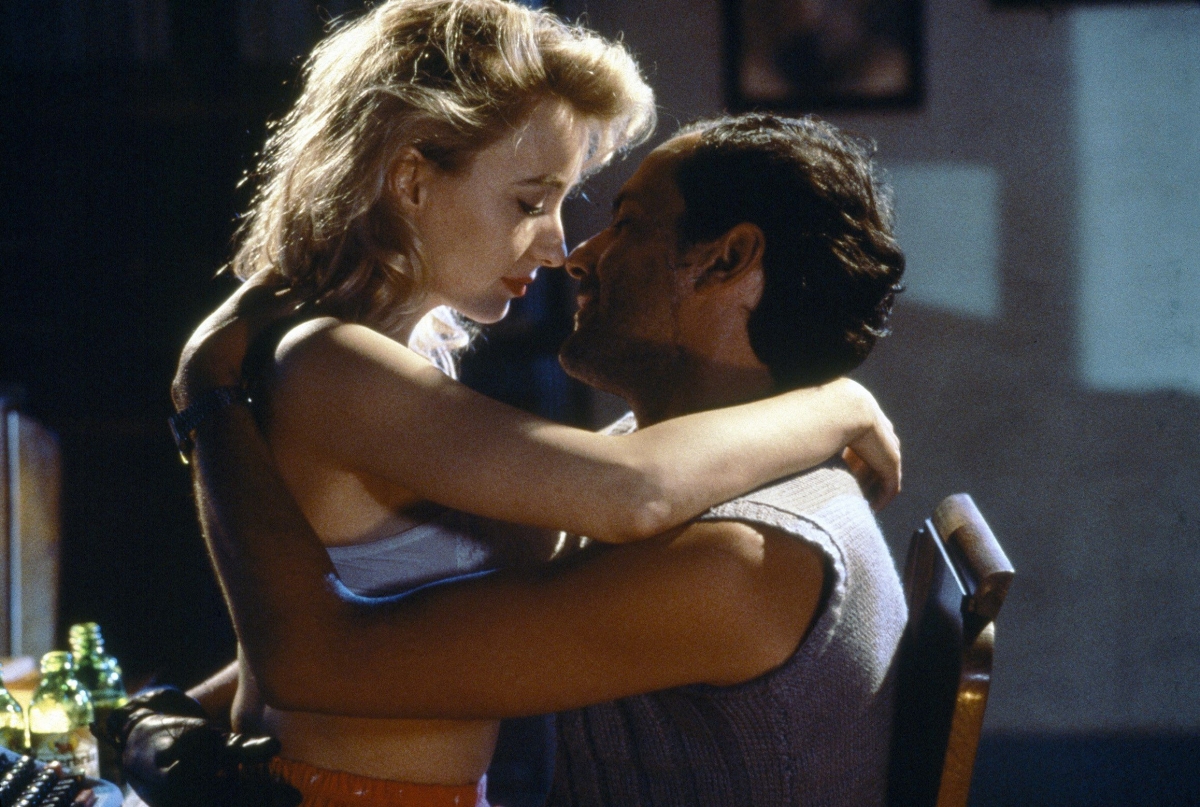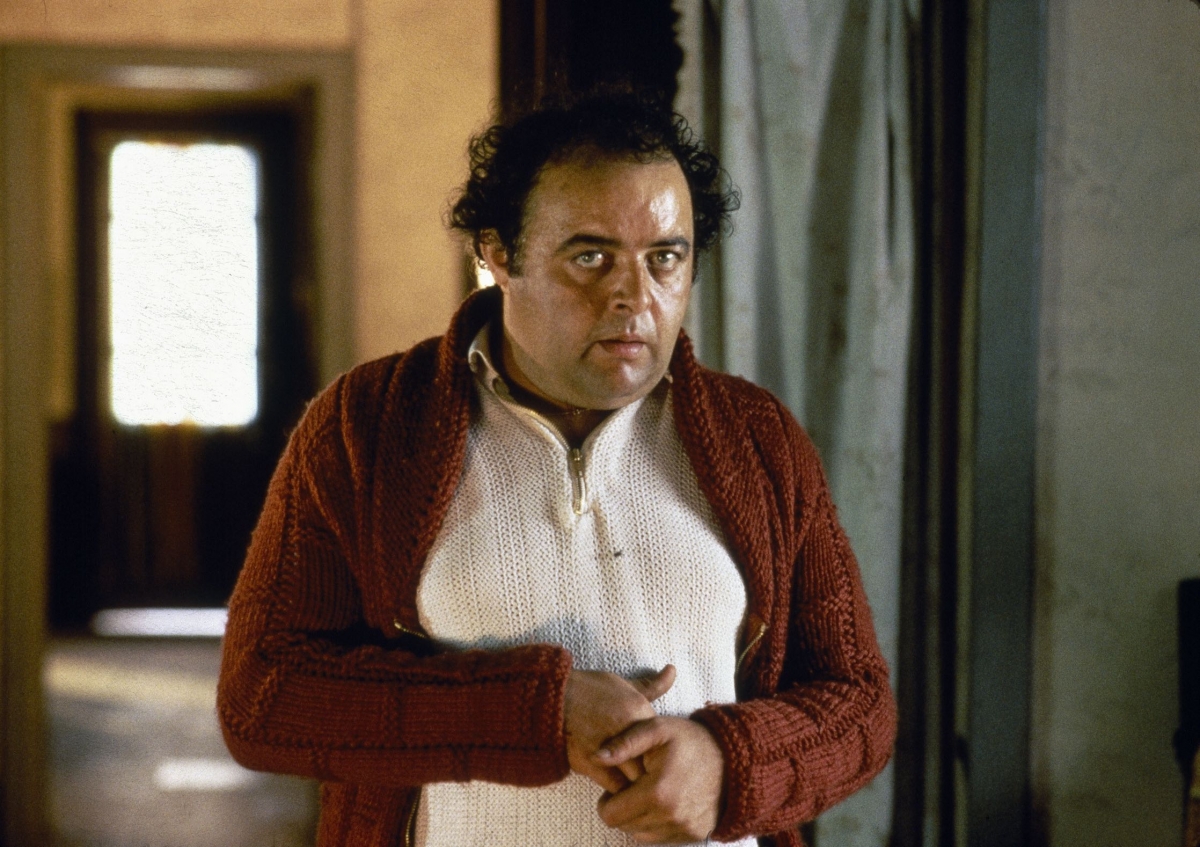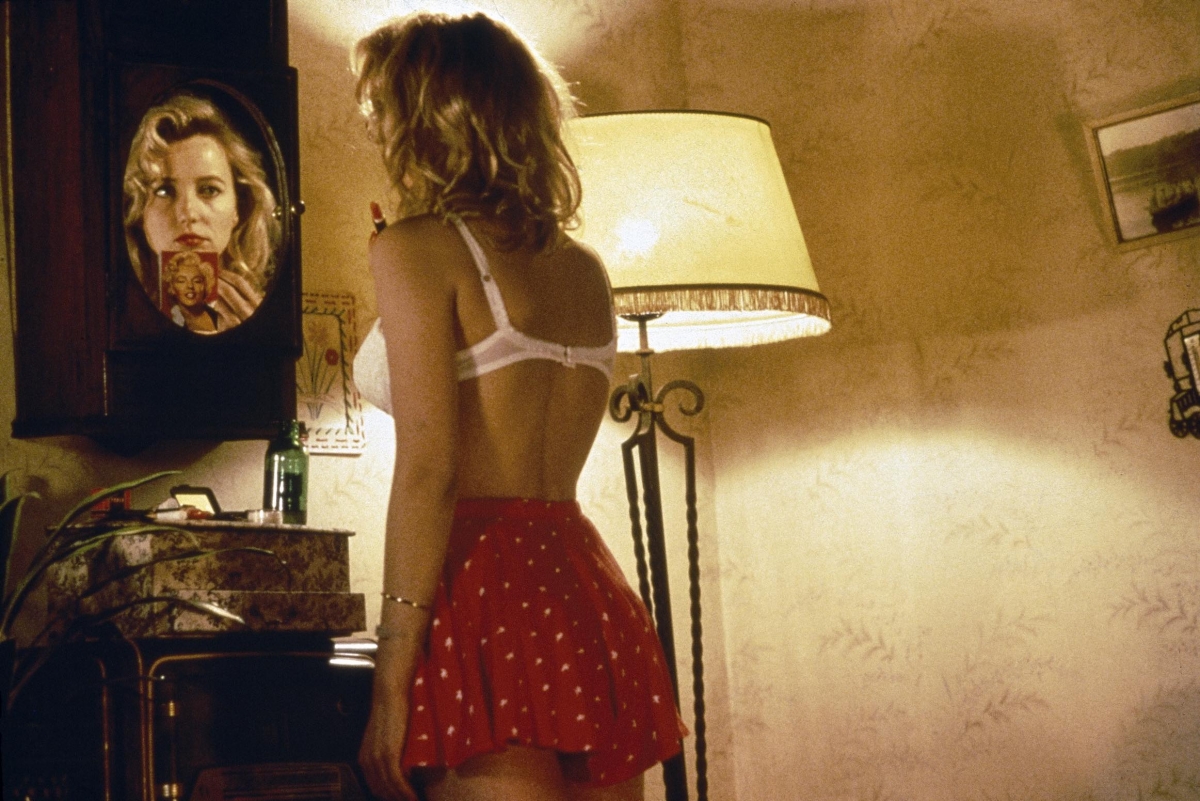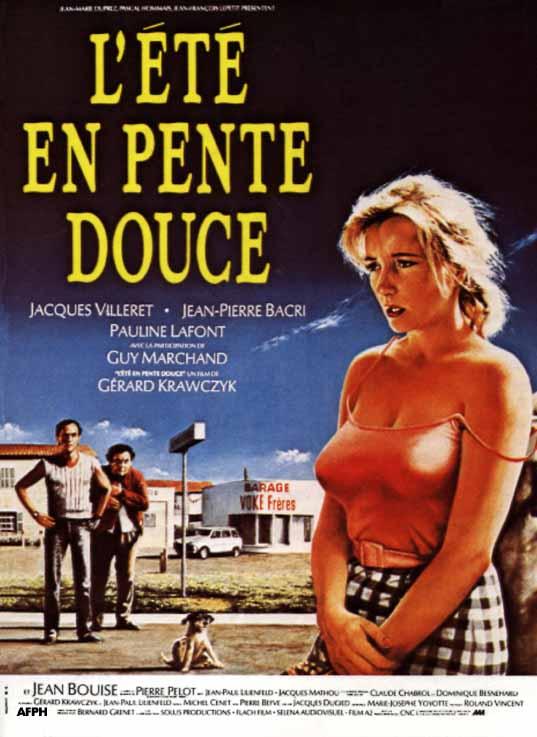There are mornings like that, or evenings - it doesn't matter - one day. It just lands on you. The weight of a banal life. The burden is so heavy that if it was someone else's life and you noticed it, you'd be there asking yourself how the other guy manages to stand it. The thing is, it lands on your. God knows why. It comes a from a long way back, possibly from another grenade going off in childhood whose echo and traces haven't yet faded. It comes from the backlog of days. And then, one fine morning - always a morning - there's another explosion without any warning. In the middle of summer: that's what happened to Fane.
Because his neighbour in the low rent block that stinks of its own ruin keeps beating his girlfriend up night after night. Zorro-Fane is sick of the cries and tears and, while any other guy would pick up his gun to shoot a mobylette, he breaks down the door and finds himself in the middle of a domestic row before the blood starts flowing. That's how Fane ends up with Lilas, taking her defence, and how he buys her off Shawenhick for a crate of beer, a stolen rabbit and some small change. Very romantic.
Fane and Lilas. Why not? There's no woman more beautiful than Lilas. It's simple: her father was the very first to tell her that she'd get ahead in life with her ass. And there's hardly any bigger loser than Fane, even more so when he learns about the death of his mother, run down by a truck outside the small house that she was living in between the two garages of the Voke brothers, like a bastion of stubborn resistance.
Fane turns up with Lilas for the funeral in the village that could almost be a ghost village if the silence of summer wasn't the very opposite of silence: a blanket of things left unsaid that stifles them with its sheer weight. Fane the heir. But he isn't the only one: there's Mo, his brother, still "a child in his head that the doctors have taken bits out of." A house for Fane, Mo and Lilas. That's what Lilas has always dreamed of: a home. A family. Children. Nothing more. Living with someone "so nice". There's no nicer guy than Fane, despite his fits of anger and his impression that he's in "one hell of a mess" as soon has he has to think about a load of things at once; there's no one nicer than Mo as a child.
The trouble is, for Fane, children are out of the question. For Mo, children are mean - like those who throw stones at him when he goes for milk. After all, he himself is still a child since the day he and Fane went to mess around with some grenades left over from the war and one of them went off…
But time will sort things out, right, Lilas? You probably just have to be nice too and not bother about the neighbours or anyone. Not listen to André Voke, one of the brothers from the garage who just want to buy the house to expand their business. Out of the question - like for children. Fane, Mo and Lilas are in their place. No one will hound them out. Ever.
Except that Lilas is a stunner! She'd turn any man's head, starting with André Voke, to the extent that he'd get divorced - he says so - for that girl living with Fane. And the summer unfolds around the three of them. For Mo, the summer is the softness and sweat of Lilas' skin on one afternoon, in secret. For Fane, it's the decision that he had always been avoiding but that he makes one day, a deliciously corrosive one: marriage… But it's also the impossible marriage, a mockery, a low blow from the whole community. It's the transformation of his house into a bar that mocks the Voke brothers. For Lilas, the summer means realizing that she can be loved for her own sake: the very word love means summer.
But the summer is also a slow and inevitable slide towards the storm, another explosion, that has been smouldering away in the sun of disguised death. That smoulders until Fane's cry that nothing and no one can silence and that continues to echo even after Fane falls silent: "This is my place! This is our place!"
Wherever it may be.
REVUE DE PRESSE
Note d'intention de Gérard Krawczyk concernant L'été en pente douce-659
The world’s most beautiful music video is Jacques Brel singing "Ne me quitte pas." No set or visual effects can […]
Note d'intention de Gérard Krawczyk concernant L'été en pente douce-659
The world's most beautiful music video is Jacques Brel singing "Ne me quitte pas." No set or visual effects can create as much emotion as Brel's face. That's why my most beautiful landscapes are the faces of Fane, Mo and Lilas. A simple story with a lot at stake: love, children and dignity in the face of social pressure, jealousy and hatred. The camera must never leave the actors in order to capture these looks of tenderness, modesty and the huge need for love. Telling a simple and powerful story without cheating to attempt to get across the vital emotions that make life more intense.




